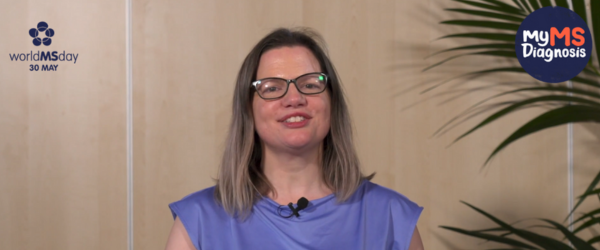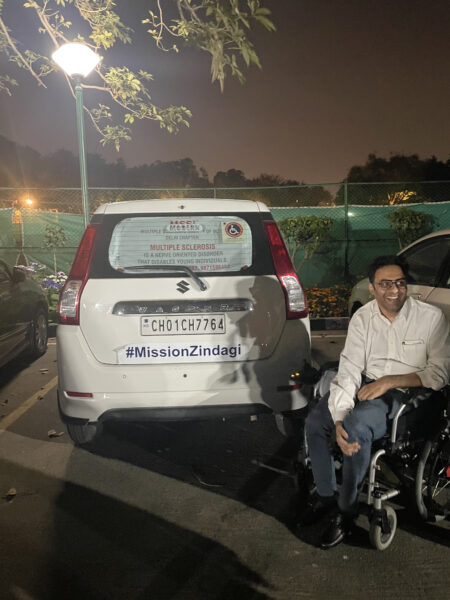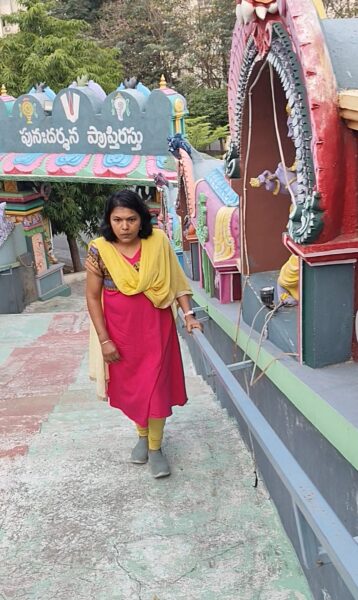I knew I had MS but I didn’t talk about it
After noticing numbness in her right leg, Paula from Colombia quickly found herself facing a diagnosis of MS. With a family history of MS, the news was initially terrifying, but her neurologist reassured her that early detection and advancements in treatment offered hope. Despite the quick diagnosis and treatment, she struggled with denial, keeping her MS hidden for years. It was only later that Paula began connecting with the MS community and accepting her diagnosis. Now, after years of learning and self-reflection, she feels able to share her journey with others.

‘My diagnosis actually came quite quickly. It was in September 2010 when I started feeling my right leg going numb from the knee down. As we tried to figure out what it could be (fatigue, posture, exercise, diet?) the sensation increased, and I began to feel a shock down my back when I lowered my head. I went to the neurologist, and upon hearing my symptoms, he immediately ordered CT scans and MRIs.
There were no barriers during the diagnosis process. When the doctor heard the symptoms, his immediate reaction was to suggest multiple sclerosis. In my family, my aunt’s husband has MS, and his story of diagnosis was a very bad experience and a rather negative example; this scared me and my parents a lot. But the doctor reassured us saying that firstly we were catching it early, and secondly, medicine had evolved significantly over the years, so I shouldn’t worry because my experience wouldn’t be the same.
The neurologist gave the diagnosis to my parents first, and then to me. It was direct, with an immediate “solution” and steps to start treatment as soon as possible. When I received the diagnosis, I felt a lot of fear. I didn’t know what would happen. Despite the neurologist saying our cases were very different, my uncle’s example frightened me a lot.
I spent many years in “denial”. I knew I had MS, I injected my Betaferon every two days, but I didn’t talk about it. I didn’t want to share it; it was as if I wanted to keep the disease in a drawer, only opening it when I had a relapse.
During the pandemic, and after switching from Betaferon to Fingolimod, I started reading about it, listening to testimonies, following MS accounts in Colombia and around the world. I realized I wasn’t alone. Although everyone is different, there are many commonalities, and I identified with many symptoms I didn’t know were associated with the disease.
I live with invisible symptoms—those no one sees but are always present. Fatigue. A constant tingling in my right foot, especially at night, which I manage with Lyrica. Mood swings. Heat intolerance. These are part of my everyday life, even if they aren’t visible.
But perhaps the hardest part of living with multiple sclerosis isn’t the physical symptoms. It’s having to explain over and over again. Hearing, “Really? But you don’t look like it!” every time I mention it. As if a disease had to be visible to be real.
Yes, I have multiple sclerosis. You can’t see it, but I can feel it. And even though there are tough days, there’s also strength, awareness, and life in everything I am. Today, I proudly say I have multiple sclerosis, that I fight every day, and that I survive with my head held high.
From my experience, even though my diagnosis was very quick, I’ve been through eigth neurologists in 15 years. The relationship with the doctor must be almost stronger than with family – the trust between you two must be immense. There should be the possibility of reaching out at any time, any day, to ask any questions, especially in the beginning when we’re learning about MS. ‘
Our thanks to Paula for sharing her MS diagnosis story on the World MS Day map. If you have an MS diagnosis story to share you can add your experience to the World MS Day map.
Related news
World MS Day is coordinated by the MS International Federation (MSIF) and its members. Hear from MSIF’s Chief Executive Dr.…

When Abhishek, from India was diagnosed with MS his dreams of becoming a mechanical engineer were thrown into uncertainty. Everyday…

Sujatha’s diagnosis journey lasted nine long years, nearly a decade of unexplained symptoms, misdiagnosis and the wrong treatment. By the…
